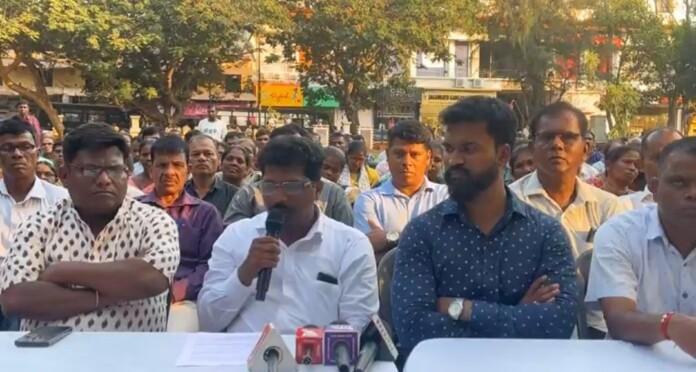Panaji: The Scheduled Tribe leaders who were on a hunger strike in Panaji pressing for their various demands including political reservation withdrew their strike on Sunday with a warning to the ruling party to work against them during upcoming Lok Sabha election.
Scheduled Tribe leader Rupesh Velip on Sunday told reporters that they are withdrawing their five-day-long protest but have resolved to work against the BJP during upcoming Parliamentary polls.
“After detailed discussion with the leaders, ST of Goa decided to visit 300 plus villages of Goa to make awareness among the ST people on how government failed to fullfil their demands,” Velip said.
He said that if the union Government fails to issue notification before 2024 election in four constituencies, we will ensure “electoral damage” to the ruling party in the upcoming elections.
The scheduled tribes have been agitating with their demand of political reservation in Goa legislative assembly.
Union cabinet had recently approved the proposal of the Ministry of Law and Justice for introduction of the Readjustment of Representation of Scheduled Tribes in Assembly Constituencies of the State of Goa Bill, 2024 in Parliament.
Chief Minister Pramod Sawant had said that this would pave way for political reservation in Goa assembly before 2027 state elections.
The agitating tribal leaders, however, were not satisfied with the union government’s decision.
Velip told reporters on Sunday that it is an “election tactic and a dilution of the straightforward legal process.”
“ The proposed bill follows a time-consuming path, including approval by Parliament, census data notification, and delimitation commission proceedings, raising concerns about achieving reservation for the 2027 Goa State Assembly elections,” he added.
Velip said that besides the demand of political reservation, the State government has “betrayed tribals” by denying their basic rights including the utilization of tribal funds, backlog job vacancies, pending tenancy cases, unfulfilled forest rights claims, and a lack of basic facilities in tribal areas.
“The community is particularly distressed by the delay in addressing their demands, ranging from support prices for cashew to quality education, scholarships, agricultural facilities, and self-employment opportunities,” he said.



